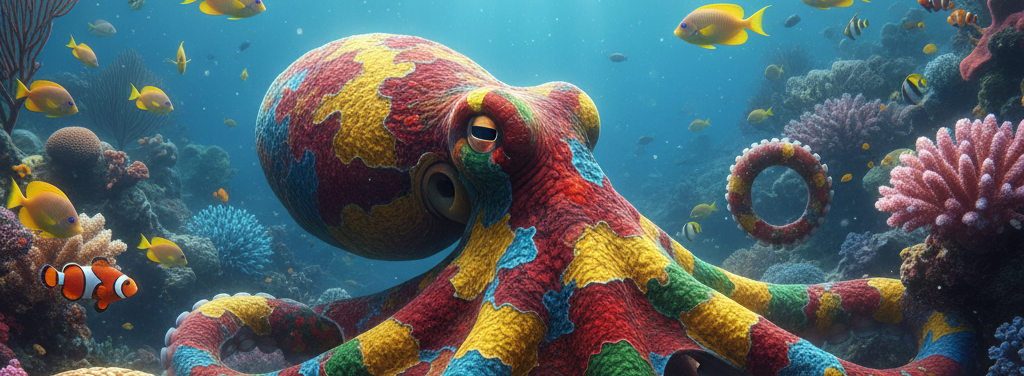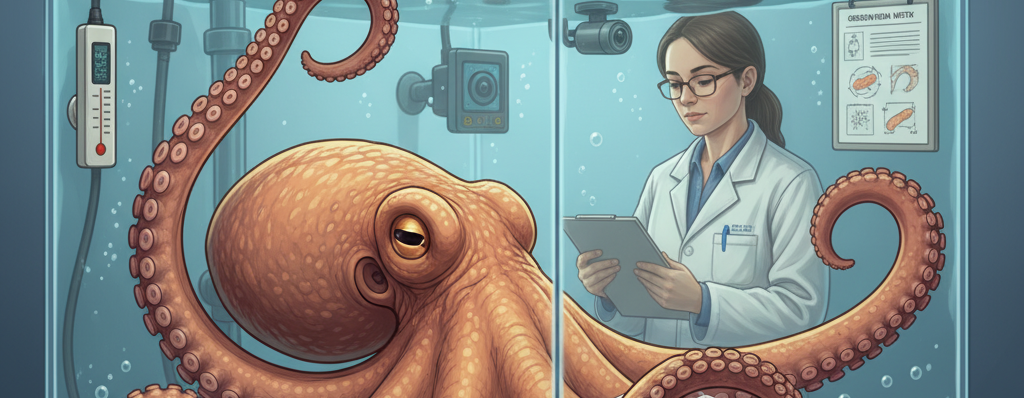Octopuses, often hailed as the Einsteins of the invertebrate world, captivate scientists and animal lovers alike with their remarkable problem-solving skills, camouflage abilities, and complex behaviors. These cephalopods, found in oceans worldwide, challenge our understanding of intelligence beyond mammals, offering insights into evolution, adaptation, and the potential for non-human sentience. In a world increasingly focused on animal welfare, studying octopuses highlights the need for marine conservation and ethical treatment in aquariums and research.

Evolutionary Background and Unique Biology
Octopuses evolved around 300 million years ago, diverging from a common ancestor with squid and cuttlefish. With over 300 species, from the tiny blue-ringed octopus to the massive giant Pacific octopus spanning up to 9 meters, they inhabit diverse environments—from coral reefs to abyssal plains. Their decentralized nervous system, with two-thirds of neurons in their arms, allows independent arm “thinking,” enabling feats like unscrewing jars or escaping enclosures.
Biologically, octopuses possess three hearts, blue copper-based blood for oxygen efficiency in cold waters, and skin with chromatophores for instant color changes—not just for camouflage but also communication and hunting. Their beak-like mouth and venomous saliva make them adept predators, while regenerative abilities let them regrow lost arms.
Behavioral Intelligence and Cognitive Feats
Studies reveal octopuses’ advanced cognition: they use tools, like coconut shells as portable shelters, and demonstrate short- and long-term memory. In labs, they’ve learned to navigate mazes, recognize individual humans, and even exhibit play behavior, such as squirting water at lights for fun. The famous case of Inky the octopus escaping a New Zealand aquarium in 2016 underscores their ingenuity.
From a pets & animals perspective, while octopuses aren’t typical pets due to their short lifespans (1-2 years for most) and complex needs, responsible aquarists keep species like the bimac octopus, providing enriched environments to stimulate their minds. This raises ethical questions about captivity, as their intelligence suggests they experience boredom or stress.

Conservation Challenges and Human Impact
Many octopus species face threats from overfishing, habitat destruction, and climate change, with ocean acidification affecting their sensory abilities. Conservation efforts, like marine protected areas in the Mediterranean and Pacific, aim to safeguard them. Initiatives such as the Octopus Watch app encourage citizen science for population tracking.
As seafood demand grows, sustainable farming of octopuses is debated—Spain’s Nueva Pescanova plans the world’s first commercial farm, but critics argue it ignores their sentience, pushing for bans similar to those on cetacean captivity.
Octopuses in Culture and Future Research
Culturally, octopuses symbolize mystery, appearing in myths like the Kraken and modern media like “My Octopus Teacher” documentary, which won an Oscar for highlighting emotional bonds. Future research, using AI to analyze behaviors, could unlock secrets of neural plasticity applicable to robotics or neurology.
For animal enthusiasts, observing octopuses in ethical settings reminds us of nature’s diversity and the importance of empathy toward all creatures.
